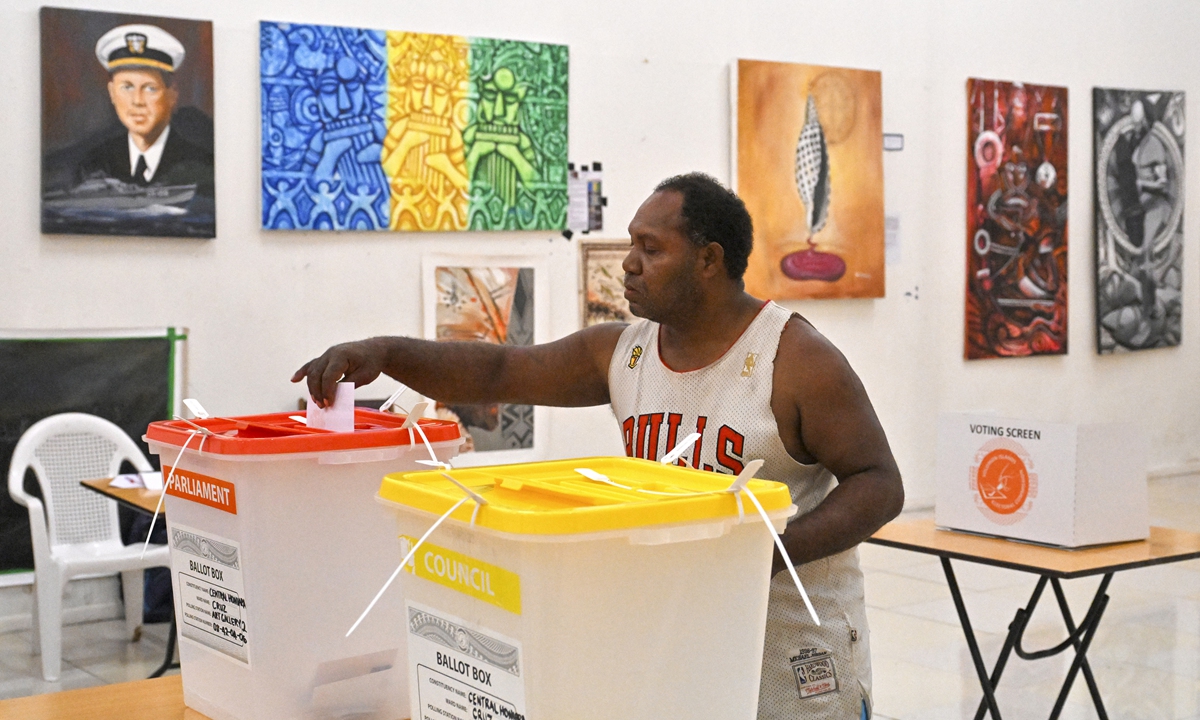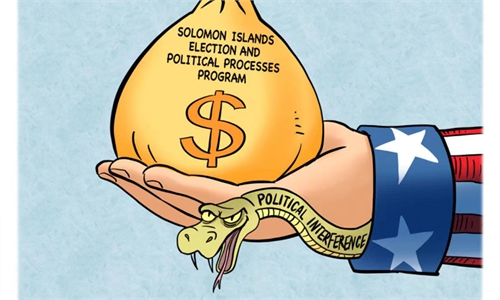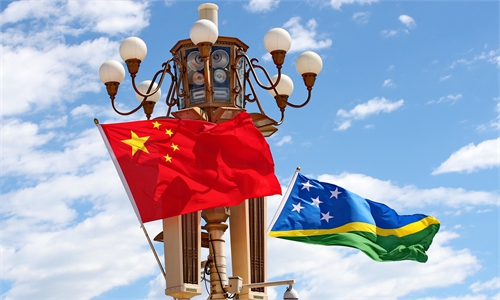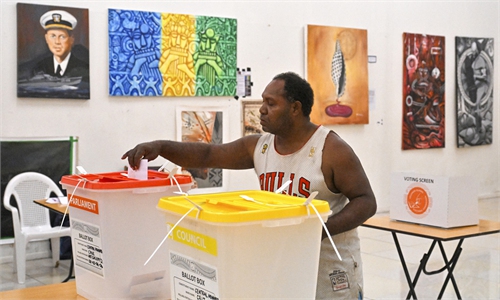Solomon Islands election results signal move away from geopolitical strife, offering new paths for societal development: analysts

A voter casts his ballot during the Solomon Islands' elections in the capital Honiara, on April 17, 2024. Photo: VCG
At the beginning of this month, the Solomon Islands, a Pacific island nation, announced the notable results of their recent elections. Jeremiah Manele, from OUR Party and the former Foreign Minister under the Sogavare government, was elected as Prime Minister.
Experts told the Global Times that the decision to downplay geopolitical conflicts has paved new pathways for social development in the island nation. Meanwhile, the new government will benefit from the legacy of cooperation and development with China established by the previous administration.
Manele's appointment was achieved against the backdrop of international anticipation and scrutiny, particularly regarding his predecessor, Manasseh Sogavare, Henryk Szadziewski, a researcher at the Center for Pacific Islands Studies, University of Hawai'i at Mānoa, told the Global Times on Wednesday in a written reply. "The choice of Manele as Prime Minister and the forming of a coalition government required considerable support from independent members of parliament," he said.
The OUR Party, headed by Sogavare, won 15 of the 26 seats required for a majority in the recent elections. Opposition groups, including the Democratic Party and the United Party, led by Peter Kenilorea Jr, gained additional seats in the new National Parliament.
On April 29, Sogavare declared his intention to withdraw from the race for prime minister, clearing the path for the Foreign Minister, Manele, to become the first Prime Minister from Isabel Province.
Szadziewski notes that the transition from Sogavare to Manele marks a potential shift for the Solomon Islands, away from the geopolitical tensions of Sogavare's term.
Compared to Sogavare's fourth term from April 2019 to May 2024, which drew significant attention from the US and Australia due to his alignment with China, including a security pact signed in 2022, Manele's election offers a chance to refocus the Solomon Islands' politics on urgent domestic issues.
Analysts noted that a large number of independent MPs joining the OUR-led coalition also confirms that taking sides among regional powers is not the decisive factor in the general election.
Yang Honglian, a Fiji-based senior researcher with the Pacific Islands Research Center at Liaocheng University in Shandong, told the Global Times that the Solomon Islands' fragile economy remains a significant challenge for its leaders.
He explained that hindered by an underdeveloped tourism sector, inadequate infrastructure, unexploded WWII ordnances, and a lack of job training, the Solomon Islands struggle to diversify the economy. Additionally, Australia's policies facilitating residency for skilled workers have further impaired the nation's industrial capabilities, especially in remote areas lacking in education and planning, posing risks to long-term development.
On the day he was appointed, Manele emphasized the urgent need to tackle the economic difficulties faced by Solomon Islanders, which include job losses, significant rises in living costs, and limited or modest economic growth during and after the pandemic.
"Sogavare's political legacy can help the new government to open a new path," Yang noted.
Chinese Premier Li Qiang on Monday congratulated Manele on his assuming office as Prime Minister of the Solomon Islands. In his congratulatory message, Li said that China and the Solomon Islands are comprehensive strategic partners featuring mutual respect and common development for a new era.
Since the establishment of diplomatic relations five years ago, Li said that bilateral ties have developed rapidly, political mutual trust has been continuously deepened, and practical cooperation has yielded fruitful results, becoming a model for South-South cooperation among developing countries.
In an exclusive interview with the Global Times in September 2021, Manele, then the Solomon Islands Foreign Minister, noted that "China offers a new form of cooperation based on solidarity, unity, and equality."
According to Manele, both the Solomon Islands and China have been working together over decades as members of the group of G77 and China Group. The two states also belong to the Asia and Pacific Group. China is the second-largest economy in the world and the Solomon Islands' biggest trading partner. Formalizing relations opens more doors and opportunities for broadened and deeper cooperation.
He also mentioned that with his several visits to China, he has seen firsthand the transformative development that has occurred and continued to happen.
"We would like to explore and learn from the lessons that China has gone through, especially in terms of poverty eradication. Having a population of 400 million middle income earners out of 1.4 billion people speaks of the growing spread of wealth within China. So that experience is also one that developing countries like the Solomon Islands would like to learn from," he stated.
Szadziewski concluded that the future prosperity of the Solomon Islands depends more on sustainable development that benefits all citizens than on external power struggles. The election of Manele represents a possible shift in the nation's direction, moving from geopolitical divisions to a focus on responsible and progressive governance.
It is essential for both domestic and international stakeholders to fully support this vision, respecting the sovereignty of the Solomon Islands and recognizing the importance of collaborative efforts to tackle local challenges, he noted.




